New fully electric van registrations fell in September, the fourth successive month of falling demand and the sixth month of decline this year, according to new figures from the Society of Motor Manufacturers and Traders (SMMT).
Registrations fell by 0.5% to 3,020 units meaning 14,188 new battery electric vans have been registered since the start of January, 7.7% below the same period last year.
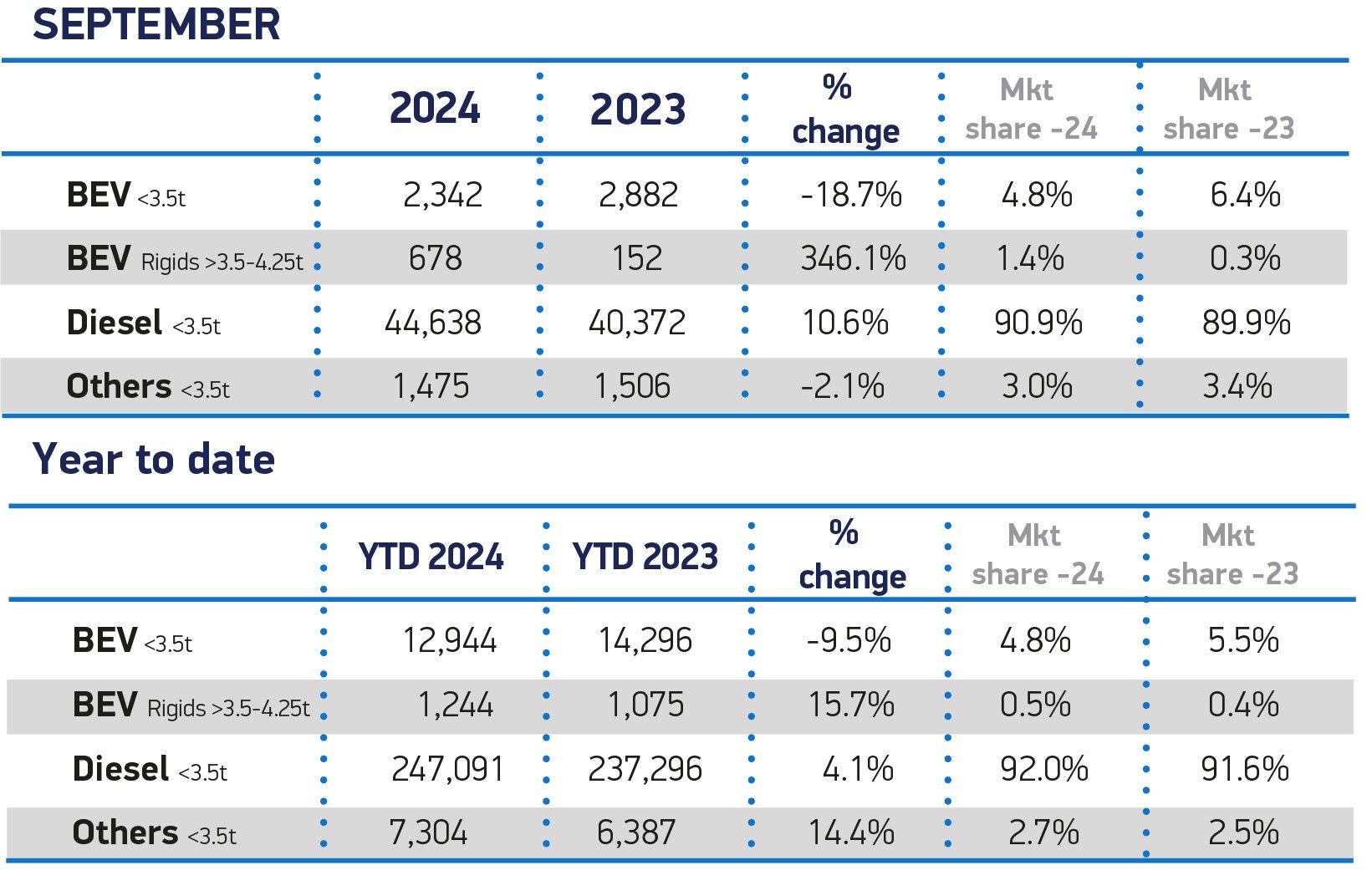
As a result, zero-emission vans now represent just 5.3% of all new light commercial vehicles (LCVs) registered in 2024 – just over half the 10% required by the UK’s zero emission vehicle mandate.
The SMMT says that decarbonisation will only be possible if fleet operators are confident that the switch is commercially viable.
Global economic challenges in recent years, however, mean BEVs remain stubbornly more expensive to source, produce and, despite compelling offers, more expensive to buy.
The lack of charge point infrastructure, particularly those that are suited to the specific needs of vans, also presents a major barrier for fleet operators considering the switch, says the SMMT.
The trade body and 11 major vehicle manufacturers have written to the Chancellor calling for measures to and help speed up the pace of the consumer and business EV transition.
They include, maintaining and extending beyond 2025, the important plug-in van grant; equalising VAT on public charging to match the 5% home charging rate; and mandating infrastructure targets to support those who cannot charge at home and with provisions for the additional size and power requirements of zero emission vans.
Overall, Britain’s new LCV market grew for the second month running in September, up 8.3% to record the best performance for the month in four years.
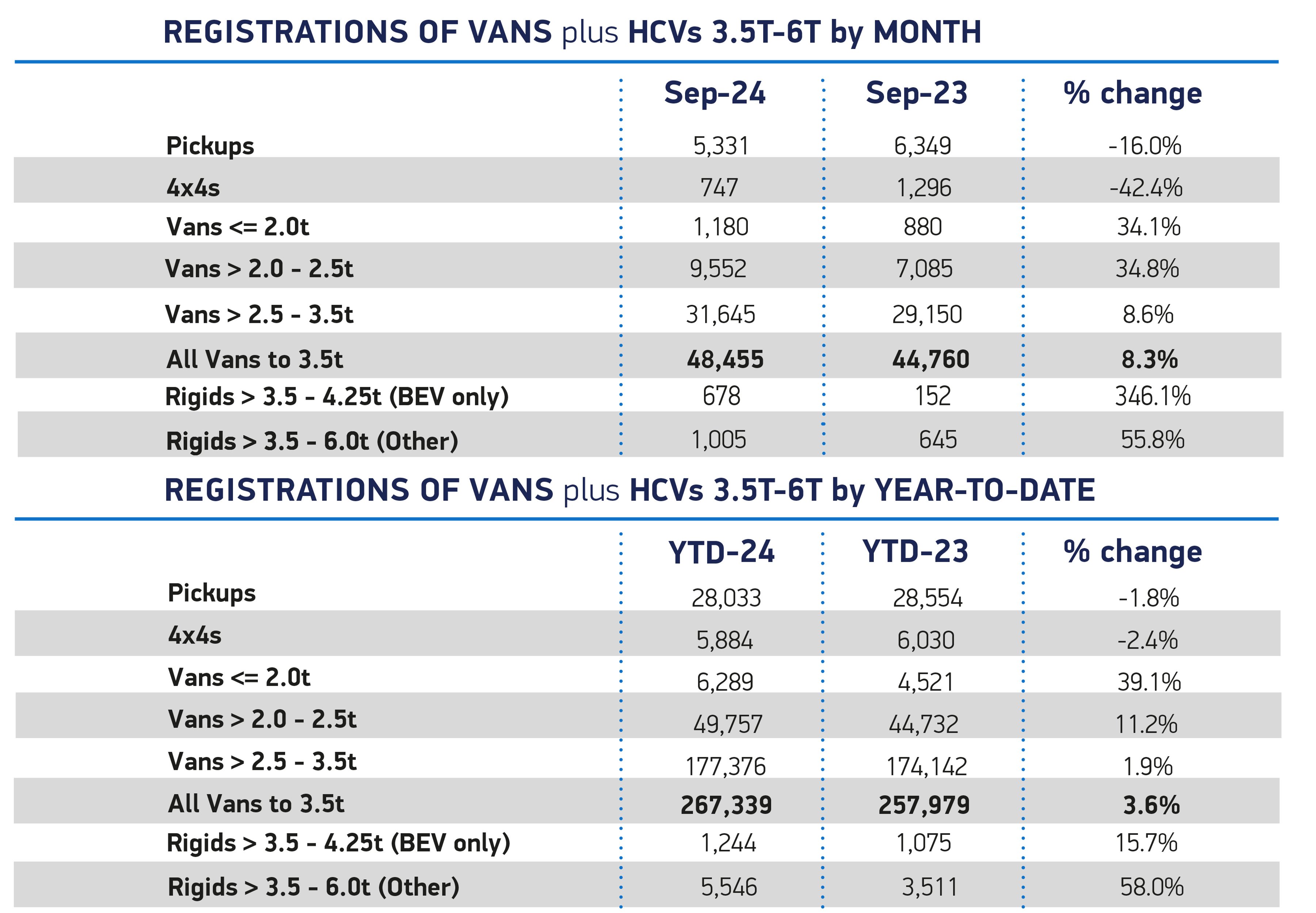
Some 48,455 new vans, 4x4s and pickups were registered as more businesses invested in fleet renewal than any month this year bar March, encouraged by the introduction of the new ‘74’ numberplate.
It means 267,339 new LCVs have joined UK roads this year, up 3.6% on 2023 and the largest January-September volume since 2019.
Mike Hawes, SMMT chief executive, said: “Growing overall demand for new vans is encouraging as the sector, a barometer of the UK economy’s health, continues to recover post Covid.
“But while manufacturers have invested huge sums delivering zero emission technology and incentivising its sale, consistently low demand is constraining industry from meeting Britain’s ambitious zero emission vehicles sales mandates.
“For van fleets to go green at pace they need the immediate encouragement – and long-term certainty – of fiscal incentives and van-specific charging infrastructure.
“Without these, UK decarbonisation ambitions cannot be achieved at the world-leading speed demanded by regulation.”
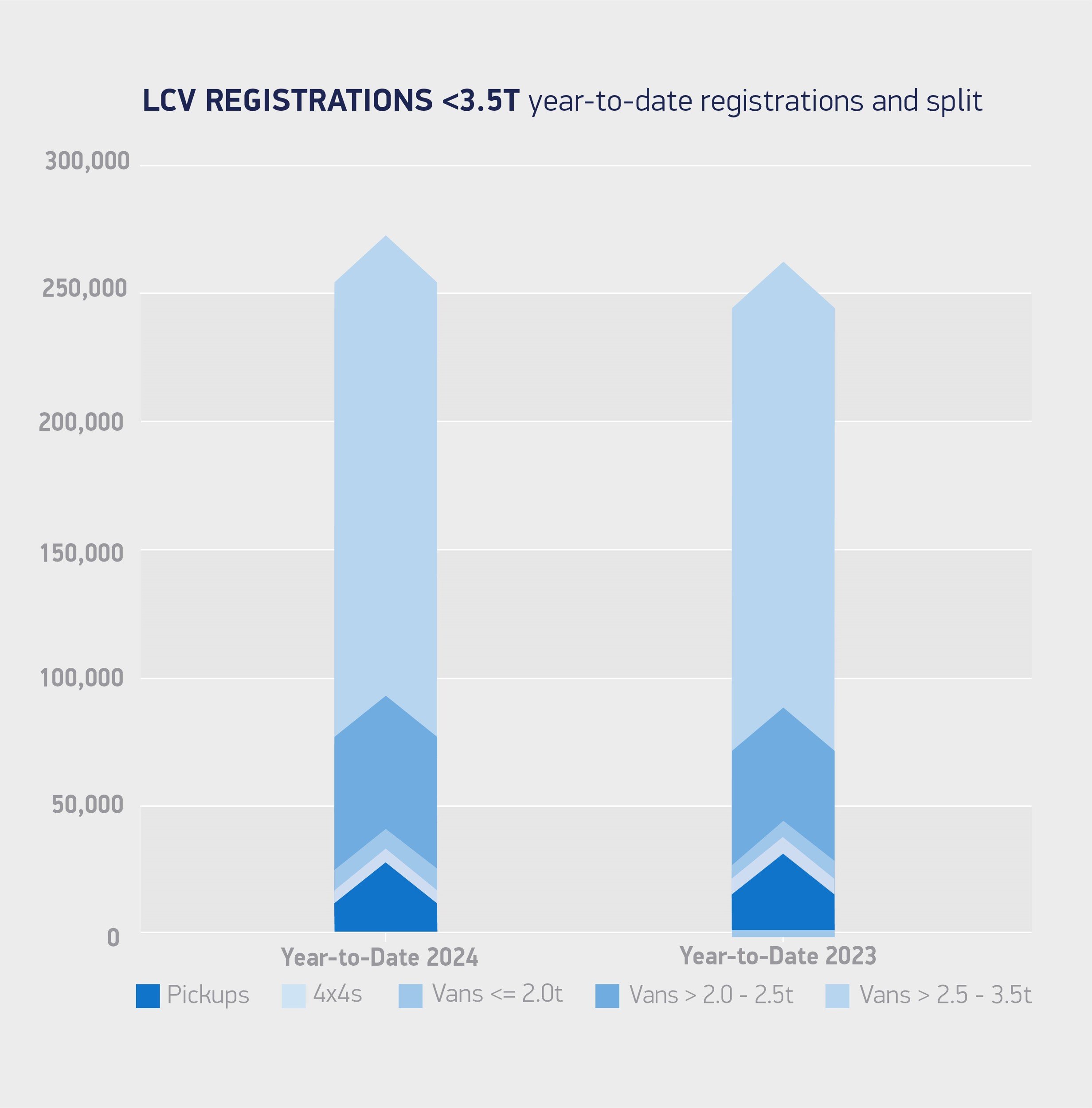
Growing demand for the smallest vans continued, rising by 34.1% to 1,180 registrations, while deliveries of new medium sized vans increased by 34.8% to 9,552 units.
The largest models remained the most popular, up 8.6% to 31,645 units, accounting for more than a sixth (65.3%) of the market.
There were fewer pickups and 4x4s joining the road, however, down 16% and 42.4% respectively to 5,331 units and 747 units, following particularly strong demand last year.
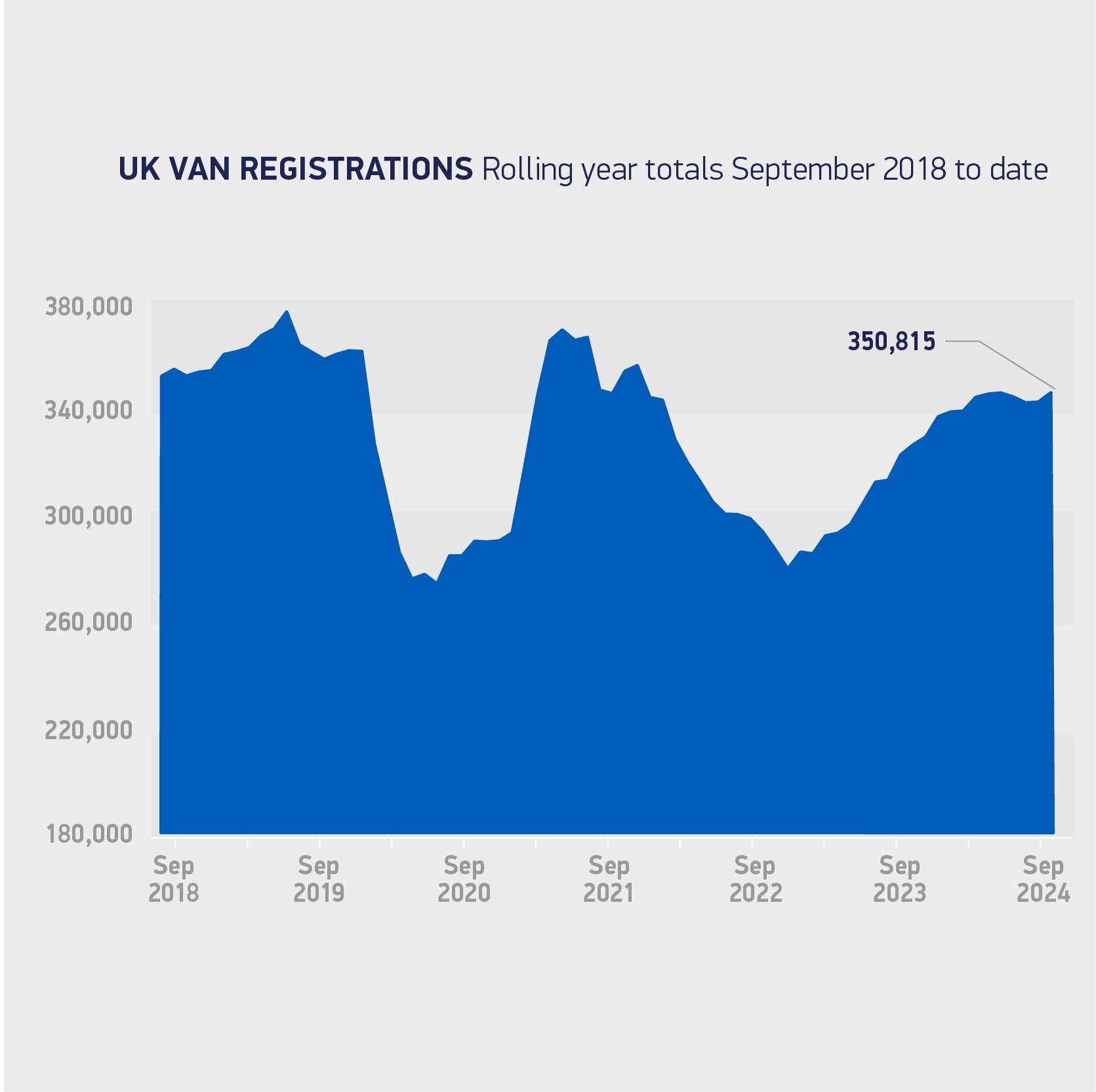
Battery range to accommodate payload a significant barrier
Research from Europcar Vans and Trucks, ahead of Fleet & Mobility Live, show that more than half of current non-electric van drivers said they have plans to switch, but some significant barriers remain.
Van drivers for work were surveyed to discover what would help them make the switch, with more than half (52%) saying they have plans to switch and more than a third (38%) that they could be persuaded to switch to electric if purchase costs were lower.
Better battery range to accommodate vehicle payload would also help 31% make the switch.
Not surprising, the main hurdle standing in the way of would-be electric van users was the availability of charging points (29%), followed by purchase costs (27%) and insurance costs (25%).
A quarter said having to stop to charge was a deterrent because of the impact on productivity.
Tom Middleditch, head of electric mobility at Europcar, said: “The barriers holding back van users remain clear – cost and charging.
“Of course charging infrastructure is improving, but as the BVRLA Van Plan has already identified, charging that is fit for purpose for van users is still limited.
“The key now is to try to get more van users trying out the electric van experience to really understand what adjustments need to be made to ensure there’s little impact on performance and productivity.”
He continued: “When it comes to purchase cost, it is not surprising this is a barrier, especially for the many businesses that currently need to keep tight control on cash flow.
“Rental overcomes this barrier as well as takes away any concerns about residual values. Renting provides access to the latest EV technology with virtually no commitment; there’s no worry about maintenance either and we’re expanding the Europcar electric van fleet to give businesses more choice, whether for a few weeks or longer-term.
“Businesses can make a virtually commitment-free entry to electric motoring to work out how to make zero emissions a reality and lower their environmental impact. And this is business-critical for those organisations that regularly go in and out of the clean air zones, zero emissions zones and the London ultra-low emission zone.”
Some 72% of van drivers surveyed said they are affected by the growing number of CAZ across the UK.
However, there is a clear lack of knowledge surrounding the zones, with 38% admitting they are not confident they understand the rules.
This lack of understanding could have a big impact on day-to-day business operations and finances, with unexpected fines quickly mounting up for higher polluting and non-compliant vehicles.
“While the electric car parc is growing significantly and businesses have greater confidence in their use, when it comes to electric vans the confidence is less evident,” added Middleditch.
“Latest data shows that electric vans represent around 1.4% of all LCVs on UK roads.
“Winning the hearts and minds of drivers who will need to adapt to electric van usage is critical and our goal is to make electric commercial motoring more accessible for more businesses by providing a choice of electric vans that can serve multiple use-cases.”
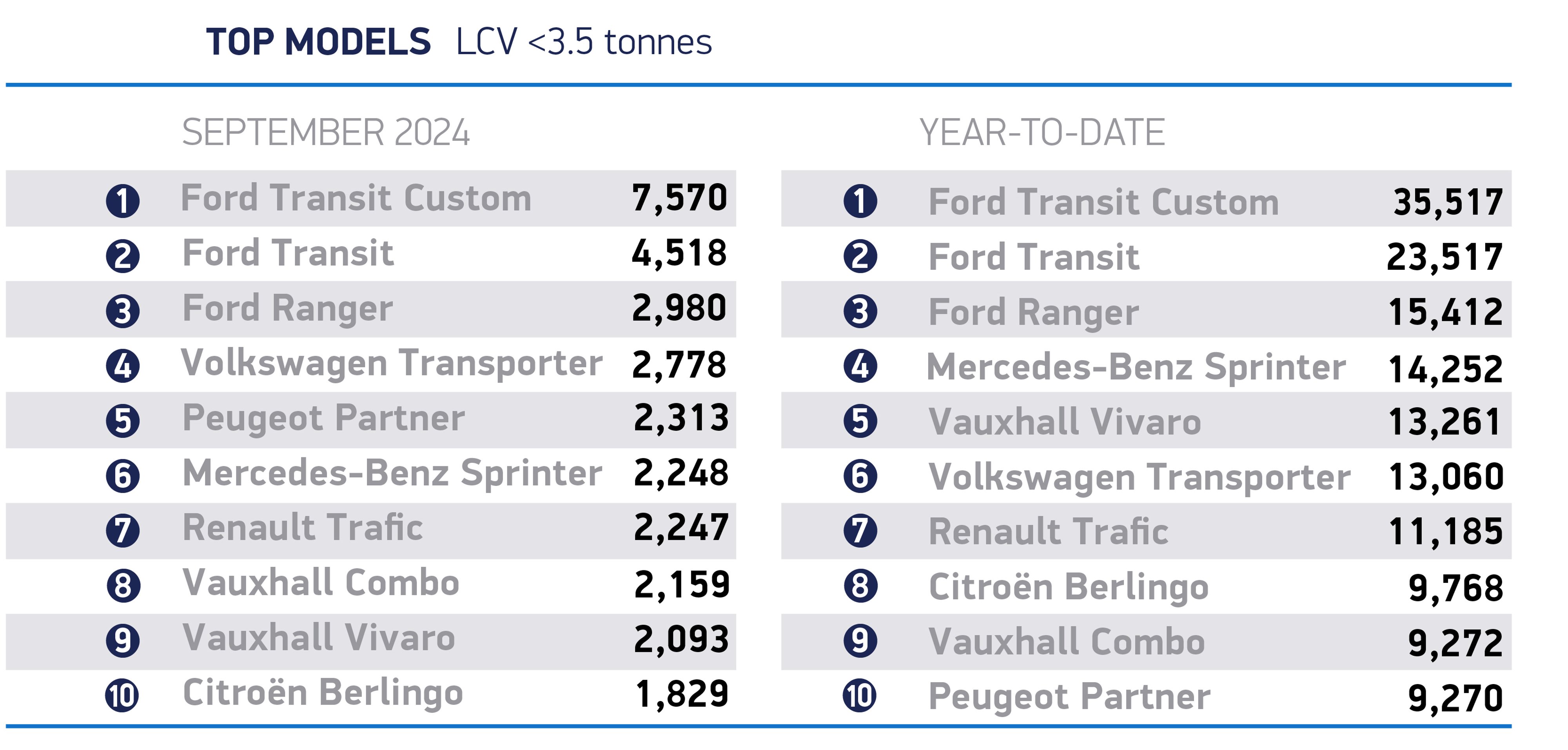



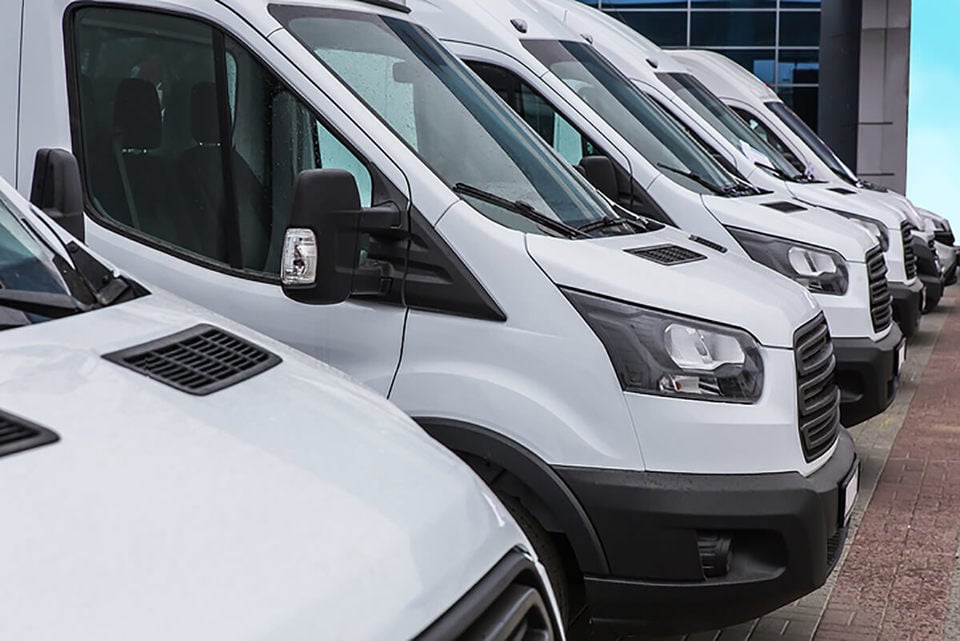








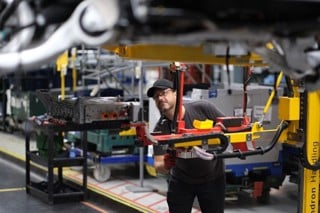













Login to comment
Comments
No comments have been made yet.